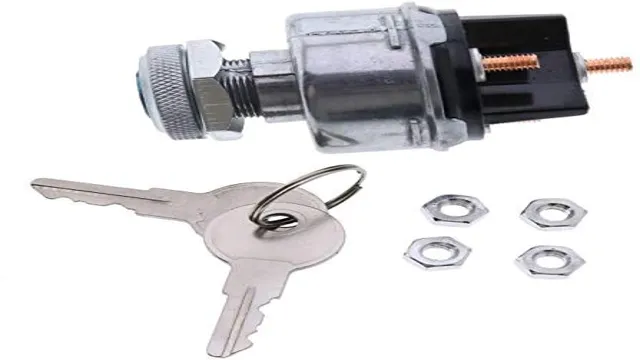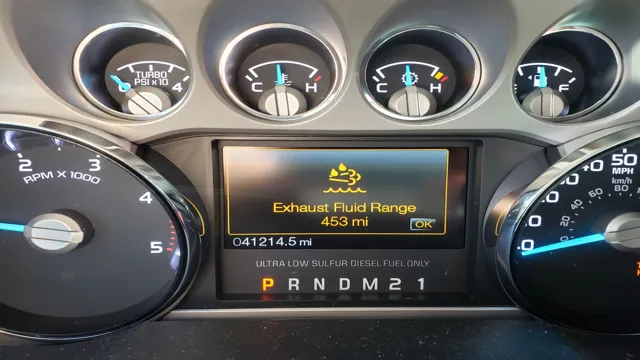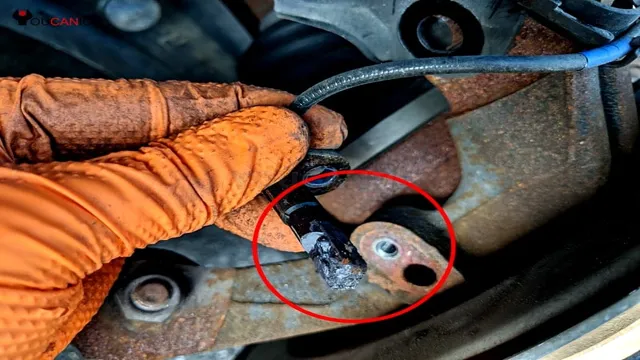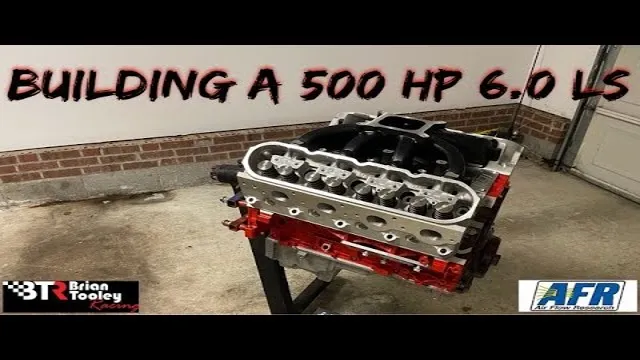Subaru Check Engine Light : Understanding and Fixing
The Subaru check engine light requires immediate attention if it is flashing, as it indicates a severe problem that could cause damage to your vehicle. However, if the check engine light is solid, it signifies a less urgent issue that still requires professional diagnosis and repair.
Ignoring the solid check engine light could lead to further complications.
Common Causes Of Subaru Check Engine Light
The Subaru check engine light can illuminate due to issues such as a faulty oxygen sensor, damaged head gasket, or dirty mass airflow sensor. Prompt attention is necessary to prevent further damage to the vehicle’s components. Regular maintenance and diagnostics are recommended to address the root cause effectively.
Possible Reasons For The Light Coming On
The Subaru Check Engine Light is notorious for causing anxiety and confusion among car owners. When the check engine light illuminates on your Subaru dashboard, it’s natural to wonder what could be wrong. Here are some possible reasons why the check engine light may come on:
- Faulty oxygen sensor: One of the most common causes of the check engine light is a failing oxygen sensor. This sensor measures unburned oxygen in the exhaust system and helps regulate fuel consumption.
- Malfunctioning fuel injection system: If your fuel injection system is not operating properly, it can trigger the check engine light. This system is responsible for delivering fuel to the engine for combustion.
- Dirty mass airflow sensor: A dirty mass airflow sensor can disrupt the air-fuel mixture, leading to inefficient combustion. This condition can cause the check engine light to come on.
- Defective spark plugs: Spark plugs are responsible for igniting the fuel in the combustion chamber. If the spark plugs are faulty or worn out, it can lead to misfires and trigger the check engine light.
- Faulty emissions control part: Components such as the catalytic converter, exhaust gas recirculation valve (EGR), or evaporative emission control system (EVAP) can malfunction and trigger the check engine light.
- Other electrical or sensor issues: Electrical issues or sensor problems, such as a faulty knock sensor or a malfunctioning temperature sensor, can also cause the check engine light to illuminate.
Impact Of A Flashing Check Engine Light
A flashing check engine light on your Subaru is an indication of a more severe problem that requires immediate attention. Ignoring a flashing check engine light and continuing to drive can lead to further damage to critical engine components, such as the valves or catalytic converter. It’s important to address the issue promptly to prevent costly repairs and potential breakdowns.

Credit: www.youtube.com
Diagnosing And Fixing Subaru Check Engine Light
The Subaru check engine light is a vital indicator that should not be ignored. When this light illuminates on your dashboard, it is an indication that there is an issue with your Subaru’s engine or emissions system. Addressing this issue promptly is crucial to prevent further damage and costly repairs. In this article, we will discuss the importance of addressing the issue promptly, steps to diagnose the check engine light, and common fixes for Subaru check engine light.
Importance Of Addressing The Issue Promptly
When the check engine light comes on in your Subaru, it is important to take action immediately. Ignoring the light and continuing to drive your vehicle can lead to more severe problems and potentially cause damage to vital components such as valves, the catalytic converter, or other emission components. By addressing the issue promptly, you can save yourself from expensive repairs down the line.
Steps To Diagnose Check Engine Light
Diagnosing the cause of the check engine light in your Subaru can be a daunting task. However, by following these steps, you can identify the underlying issue and take appropriate action:
- Check for loose gas caps: Sometimes, a loose or damaged gas cap can trigger the check engine light. Ensure that the gas cap is tightly secured and in good condition.
- Use an OBD-II scanner: Invest in an OBD-II scanner to retrieve the trouble codes associated with the check engine light. These codes will provide valuable information about the specific issue.
- Research the trouble codes: Once you have the trouble codes, research them to understand their meanings and potential causes. This will help you pinpoint the problem area.
- Inspect common problem areas: Based on the trouble codes, inspect common problem areas such as the oxygen sensors, fuel injection system, mass airflow sensor, spark plugs, and emissions control parts.
- Consult a professional: If you are unable to diagnose the issue on your own, it is advisable to consult a professional mechanic who specializes in Subaru vehicles. They have the expertise and specialized tools to accurately identify and fix the problem.
Common Fixes For Subaru Check Engine Light
Once the issue has been identified, there are several common fixes that can address the check engine light in your Subaru:
| Issue | Fix |
|---|---|
| Loose or damaged gas cap | Replace the gas cap with a new one and ensure it is tightly secured. |
| Faulty oxygen sensor | Replace the oxygen sensor to restore proper engine performance and efficiency. |
| Misfiring spark plugs | Replace the spark plugs to improve engine combustion and reduce emissions. |
| Damaged or clogged catalytic converter | Repair or replace the catalytic converter to ensure proper exhaust emissions. |
| Faulty mass airflow sensor | Clean or replace the mass airflow sensor to ensure accurate air/fuel mixture. |
It is important to note that these fixes may vary depending on the specific issue with your Subaru. Consulting a professional mechanic is highly recommended for an accurate diagnosis and proper resolution of the check engine light.
By addressing the check engine light promptly and following the necessary steps, you can ensure the proper functioning and longevity of your Subaru. Don’t delay in taking action when this crucial indicator appears, as it could save you from costly repairs and potential damage to your vehicle.
Driving With A Subaru Check Engine Light
If the Subaru Check Engine Light is solid, it indicates that attention is needed but not immediately. However, if the light is flashing, it signifies a more severe problem that could cause damage to your vehicle if you continue driving.
Interpreting The Severity Of The Light
A solid check engine light means attention is needed soon.
Risks Of Driving With A Flashing Check Engine Light
Driving with a flashing light can damage vital engine components.

Credit: www.tvsubaru.com
Maintenance Tips To Prevent Subaru Check Engine Light
Car maintenance is crucial in preventing the Subaru Check Engine Light from turning on. By following good upkeep practices and recognizing warning signs, you can avoid the inconvenience and potential costly repairs associated with this warning indicator.
Regular Maintenance Practices
Regular maintenance practices play a vital role in preventing the Subaru Check Engine Light from illuminating. Examples include:
- Changing the oil and oil filter at recommended intervals
- Checking and replacing air filters when dirty
- Performing routine inspections of the fuel, ignition, and emissions systems
- Tightening or replacing loose or damaged gas caps
- Using high-quality fuel and other consumables
Signs To Watch Out For To Prevent The Light
Recognizing potential warning signs can help prevent the Subaru Check Engine Light from turning on. Keep an eye out for:
- Odd noises or vibrations during driving
- Decreased fuel efficiency
- Irregular performance or handling
- Unusual odors or smoke from the exhaust
- Dashboard warning lights or messages
Professional Assistance For Subaru Check Engine Light
When your Subaru’s check engine light comes on, it’s essential to address the issue promptly to prevent further damage and ensure your vehicle’s optimal performance. While some check engine light problems may be minor, others can be a sign of significant issues requiring professional attention. Knowing when to seek professional help is crucial for maintaining the health of your Subaru and ensuring your safety on the road.
When To Seek Professional Help
If you notice your Subaru’s check engine light illuminating or flashing, it’s time to seek professional assistance. Ignoring a flashing check engine light can lead to severe damage to critical engine components and compromise the safety of your vehicle. Additionally, if you experience any noticeable changes in your car’s performance, such as rough idling, decreased fuel efficiency, or unusual noises, it’s best to consult a professional to diagnose and resolve the issue promptly.
Expert Advice On Check Engine Light Issues
When it comes to check engine light issues with your Subaru, seeking expert advice is crucial to accurately diagnose and address the problem. Professional technicians with specialized knowledge of Subaru vehicles can effectively analyze the diagnostic trouble codes and perform thorough inspections to identify the root cause of the check engine light. By entrusting your Subaru to experienced professionals, you can ensure that the underlying issues are addressed with precision, thereby restoring your vehicle’s performance and reliability.

Credit: www.reddit.com
Frequently Asked Questions Of Subaru Check Engine Light
Can I Drive With Check Engine Light On Subaru?
Yes, you can drive with the check engine light on in your Subaru, but it is not recommended if the light is flashing. A solid check engine light indicates attention is needed, while a flashing light suggests a more severe problem that could lead to damage if you continue driving.
What Causes Check Engine Light To Come On In Subaru?
Common causes of Subaru check engine light are damaged oxygen sensor, faulty head gasket, fuel injection issues, dirty airflow sensor, or defective spark plugs.
What Is The Most Common Reason For Check Engine Light?
The most common reason for a check engine light is a failing oxygen sensor. It’s important to address this issue promptly.
How Serious Is A Solid Check Engine Light?
A solid check engine light signals a moderate issue that needs attention. A flashing light indicates a severe problem requiring immediate attention.
Conclusion
Addressing the check engine light in your Subaru promptly is crucial for optimal vehicle performance. Understanding the potential issues behind the light can prevent further damage. Don’t hesitate to seek professional help to diagnose and resolve any underlying problems. Drive safely and keep your Subaru in top condition.





